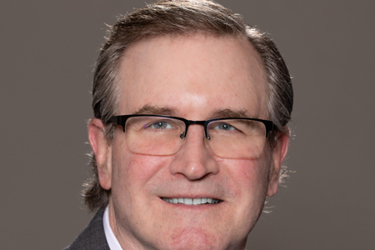What The Emerging Science Tells Us About Treating Obesity
By Michael Kyle, CMO, Currax Pharmaceuticals

For decades, the conventional wisdom among doctors was that if people would only assume more personal responsibility – exercise more, eat cleaner diets – they could conquer obesity on their own. Many providers have even balked at the notion of categorizing obesity as a disease at all.
We now know that we had it wrong—that obesity is, in fact, a disease, not a lifestyle choice.
But just as we conquer one misunderstanding, we’re falling victim to another. Far too often, healthcare providers approach obesity with a simplistic approach – and it leaves many patients ill-served.
Based on the latest research, 22 medical associations, including the AMA and WHO, have defined obesity as a complex chronic disease, and experts like Dr. Andres Acosta of the Mayo Clinic have provided nuanced understandings of the root causes of obesity. We now understand that there is a wide spectrum of obesity phenotypes, each with its own distinct characteristics.
Differing Individual Behaviors
Generally speaking, there are at least four distinct types of individuals that struggle with obesity:
- Slow Burn: Individuals with a metabolism lower than expected, leading to an imbalance between energy expenditure and caloric intake.
- Hungry Gut: Characterized by rapid gastric emptying, causing individuals to feel hungry shortly after eating due to a lack of proper signaling to the brain.
- Hungry Brain: In this phenotype, the brain fails to interpret signals related to hunger and satiety correctly, resulting in persistent feelings of hunger.
- Emotional Eater: Individuals in this category may turn to food in response to both positive and negative triggers as a coping mechanism. This can go all the way back to our earliest childhood memories; maybe a parent gave you a piece of cake to celebrate a good grade, or to soothe you when you banged your knee, and you’ve since developed a lifelong habit of using food to mark happy moments and to soothe yourself in times of pain.
Targeted Treatments/Precision Medicine
Today, the medications on the market may align with specific phenotypes based on their mechanisms of action, and data show that patients who are treated based on phenotype have more successful outcomes.
For instance, Slow Burners generally are more successful with prescribed medications like phentermine that work to increase metabolic rates.
For patients who fall into the Hungry Gut category, doctors often recommend GLP-1 agonists, which slow down gastric emptying, as viable options.
Meanwhile, Hungry Brain cases should often receive drugs like Qsymia, which target the brain's appetite control mechanisms, and Emotional Eaters are typically directed to Currax’s own drug Contrave, which acts on the reward pathways in the brain to address emotional eating patterns.
But despite these advancements in more tailored treatments, there is still a significant knowledge gap among healthcare providers. Many doctors, overwhelmed with patient loads, struggle to dedicate sufficient time to understand the root causes of obesity for each patient. It requires asking patients questions about what drives their eating and about the food choices that they make.
Meanwhile, formal education on obesity in medical training programs remains inadequate. (My own personal example is instructive: When I was a med student many years ago, I attended more lectures on medical malpractice than obesity. And I believe I had one lecture on medical malpractice.)
Signs Of Change
Fortunately, more healthcare training programs are recognizing the need to prepare our next generation of healthcare providers for a challenge that drains an estimated $1.4 trillion from our economy. And that doesn’t include the cost of treating the health consequences of obesity.
While those efforts are commendable, we need to do more – and start earlier – to give future healthcare providers the right context and framework to treat obesity effectively. There is a pressing need for a comprehensive curriculum in medical schools, nursing schools, and other healthcare professional programs. It’s not enough to simply talk about or treat hypertension or diabetes; we must focus on the obesity challenge as a whole.
Patient Expectations
My personal hope is that within the next three to five years, technology advancements in the form of biomarkers and more efficient surveys will unlock quicker identification of obesity phenotypes, allowing for more personalized and effective treatments.
Looking even farther ahead, the evolving landscape may witness a shift toward hybrid drugs or combinations that address multiple phenotypes simultaneously, offering a more comprehensive approach to obesity treatment.
By recognizing and addressing diverse phenotypes, tailoring treatments accordingly, setting appropriate patient expectations and prioritizing education for healthcare providers and patients, we can pave the way for a far more effective and personalized approach to combatting obesity and help more of our neighbors to live better lives.
About The Author:
Michael Kyle is Chief Medical Officer at Currax Pharmaceuticals. He has worked in segments of the healthcare industry that most pharma leaders never experience, from medical practice to clinical research to the insurance industry, which has given him a unique perspective on how to help people live longer, healthier lives.
